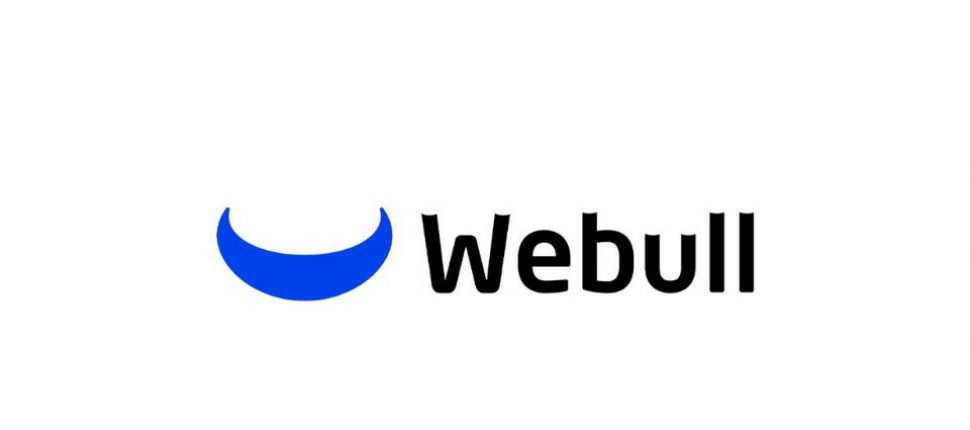- >Best Crypto Exchanges
- >Webull vs Robinhood
Robinhood Overview
Robinhood was founded by Vladimir Tenev and Baiju Bhatt who had previously worked at established financial institutions such as JP Morgan and UBS. The app was launched in December 2013 and has since grown to more than 5 million users, thus claiming the title of the largest crypto tokens, stocks, and ETFs brokerage platform with zero commissions.
The platform also supports market tracking functionality that enables investors to monitor their investments at all times while offering advanced options for high-frequency traders, such as the ability to track market data and execute trades with a single click.
Robinhood’s platform is available to American investors only; however, the company has plans of launching in other parts of the world, such as Canada. Unlike most crypto tokens and stocks trading platforms, Robinhood offers a social experience where traders can chat directly with each other and share market insights and investment strategies.
Besides, the platform also offers a built-in news feed that features headlines from Business Insider and CNBC, so you don’t have to switch apps to keep up with market trends and upcoming events. Some of the top trading tools you can expect to find on Robinhood include a ton of educational resources ideal for beginners, dedicated customer support on the phone as well as email, and an offer of spending your holdings from a Robinhood debit card.
- A great one-stop shop for anyone looking to invest in cryptocurrency or stocks
- Easy onboarding procedure requires very little from user
- Fully regulated financial institution in the United States
- Support for BTC, ETH, LTC, BCH, DOGE, ETC, and BSV
Robinhood Pros & Cons
Pros
Commission-free trading with an intuitive mobile interface
Easy and quick funding with no account minimum
Robinhood gold offers tons of market research at affordable prices
Offers individual taxable accounts
Cons
Doesn’t offer retirement accounts or trusts
Limited options for moving crypto in and out of the platform
There is no way to set up a transfer to designated beneficiaries
Webull Pros & Cons
Pros
Easy to use with diversified asset class to invest and trade
Supports most popular cryptocurrencies
Gives users access to various accounts including retirement accounts
Offers retirement accounts
Cons
Lacks features related to research and tools found on other platforms
Only supports a limited number of cryptocurrencies
Lacks advanced trading tools and features found on other platforms
No ability to withdraw crypto from the site
Beginner Friendliness
When it comes to beginner friendliness, Robinhood takes the lead as it offers a beginner-friendly interface and provides tons of educational resources to help new investors learn the ropes.
On Robinhood, you will find options to learn to trade, get stock recommendations, and learn about things like how to manage an investment portfolio. Robinhood also offers a retirement calculator that helps you track your investment over time as you plan your retirement. Granted, the app does not come with an IRA account; however, it offers plenty of order types that one can use to set up a recurring investment strategy. Robinhood will also show you how many people own shares of that same company, the average price other users bought in as well as the price distribution statistics across all users who own the asset. The point is to give users all the information they need to make an informed decision with each trade.
Webull, on the other hand, is also ideal for beginners as it offers a mobile-friendly app that’s easy to use. It also offers an option on the desktop version that allows you to try paper trading with real market data so you can have some hands-on experience before you start trading with real funds.
Transaction Fees for Cryptocurrencies
Both Webull and Robinhood do not charge any fees for cryptocurrency transactions. However, Webull offers extended hours trading, which is not available on Robinhood. Both platforms make money on the spread, however, which means that — for instance — Bitcoin might be listed at a price higher than an exchange like Coinbase.
Because Webull has extended hours of trading, it provides more opportunities for users to trade at their convenience as well as allows traders to take advantage of cryptocurrency market volatility through shorting and even options trading. With Webull, there is a zero minimum deposit requirement on all account types; however, the minimum deposit on margin accounts is set at $2000.
Robinhood also has a minimum deposit requirement of $2,000 for margin accounts; however, Robinhood features a fairly lower annual margin rate at 2.5%. A margin rate is simply the interest broker charge if you borrow money to invest as is the case with margin trading.
Despite the commission-free offer, both platforms have to charge unavoidable regulatory fees. For this reason, Robinhood charges a $5.1 fee per every $1million of principal sales only. Webull, on the other hand, charges a $0.0000051 fee of the total trade amount. There is also a $75 account transfer fee when you move your account from one broker to the other.
Trust and Security
Both Webull and Robinhood offer some of the highest levels of security for those who invest in their platform. Both platforms are regulated in the US by the SEC (Securities Exchange Commission). Webull is also a member of the Securities Investor Protection Corporation, which protects customers on platforms such as Webull by up to $500,000 in losses caused by brokerage shutdowns.
Furthermore, Webull’s Apex Clearing boasts of an additional insurance policy that protects securities losses up to $150 million. However, investors should keep in mind that coverage won’t protect them from losing money in the markets.
Robinhood is also a member of the SIPC that offers customers of its members a cover of up to $500,000. However, crypto investments on Robinhood are not protected by the SIPC. Other layers of protection offered by Robinhood include encryption of sensitive information, thus ensuring that whatever customers send to the app is protected. With Robinhood, you also get standard account protection tools such as two-factor authentication.
Supported Cryptocurrencies
Although both Webull and Robinhood offer more than crypto trading, the selection of cryptocurrencies available to trade can be a deal-breaker for most crypto enthusiasts.
Out of the two apps, Webull offers support for the most cryptocurrencies with support for 20 crypto trading pairs. These include popular crypto tokens such as Bitcoin, Bitcoin Cash, Litecoin, Stella Lumens, Ethereum, Ethereum Classic, Chainlink, Dogecoin, and Shiba Inu, to mention a few.
Robinhood, on the other hand, only supports seven cryptocurrencies, including Bitcoin, Bitcoin Cash, Litecoin, Dogecoin, Bitcoin SV, Ethereum, and Ethereum Classic.
Customer Support
Both platforms offer customer support systems that you can access through various means. On Webull, traders can use the in-app chat to get their questions answered instantly, or they can also email the company for any details on issues related to their account. There is also an extensive FAQ section with answers to the most common questions about trading and investing on Webull.
Robinhood also has an in-app chat support system that allows traders to get help immediately when needed. There is also a comprehensive FAQ section with detailed information on how Robinhood works and other general questions about the app.
Standout Features
Webull and Robinhood offer some of the most exciting features for those who trade on their platform.
Webull offers one-touch trading that allows investors to set a trigger price for purchasing or selling an asset without having to wait for expiration time before executing their orders. This feature eliminates the need to monitor assets constantly since it does this automatically by setting an entry and exit point for each trade.
Robinhood, on the other hand, offers free options trading to its users. Traders can place market, limit, or stop orders for stocks that are available in their portfolio without paying any fee at all. This is an exciting feature considering that many brokers charge fees per trade which can be frustrating, especially when you’re just starting. Moreover, Robinhood offers a debit card that its customers can use to spend their funds online.
CryptoVantage Verdict: Webull Gets Slight Edge Thanks to Expansive Crypto Offerings
Overall, While Robinhood has a long-standing track record, not to mention access to educational resources ideal for beginner traders, Webull has emerged as a better option to Robinhood thanks to Webull’s variety of cryptocurrencies available to trade.
Granted, both platforms have equal fees and account minimums for various accounts; however, Webull goes a step further to offer IRA accounts for those looking to set up a retirement account. Robinhood offers an intuitive design for setting up recurring investments, not to mention in-depth information that helps traders make an informed decision based on market sentiments. However, Webull gives the option of paper trading, which is used by beginners and experts alike.
Finally, it’s worth mentioning that Robinhood offers a debit card option that provides a banking service to its customers while Webull does not. Overall, Webull offers the most features; however, each trader should make a decision based on the pros and cons offered on each app.









